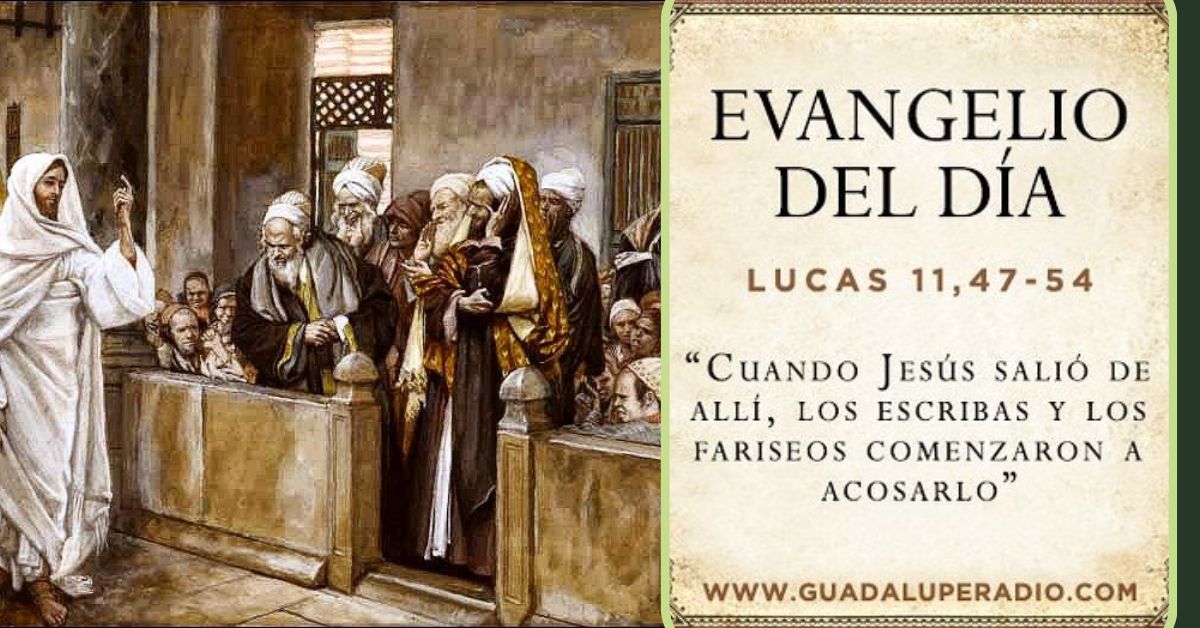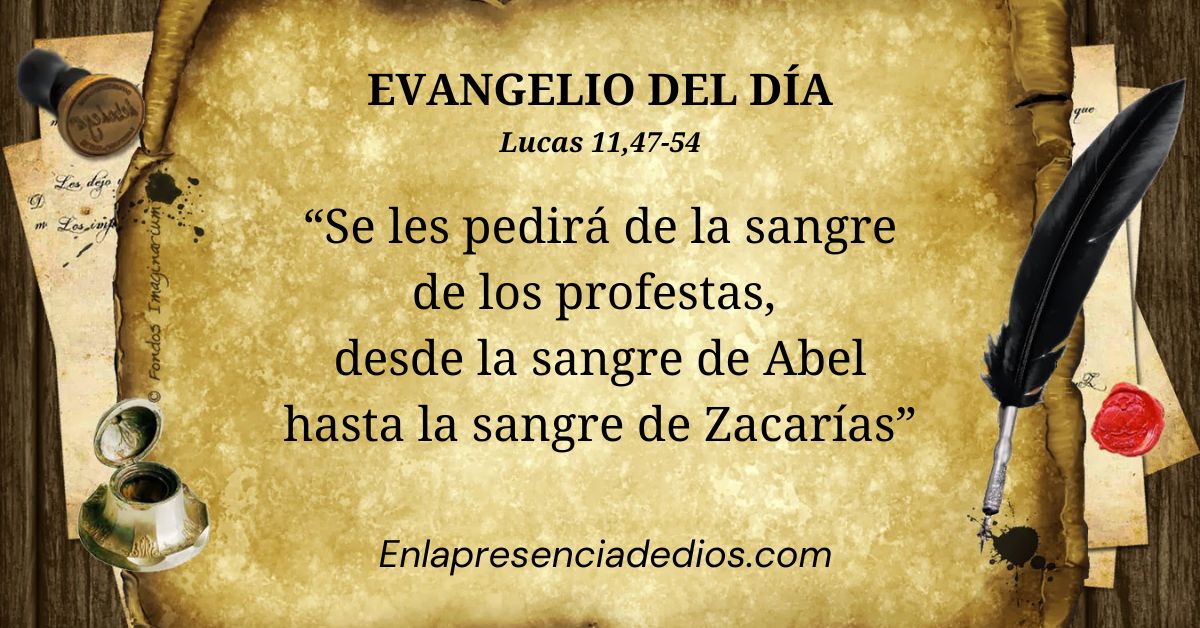Reflection on today's Gospel

Man is justified by faith, without the works of the Law.
All have sinned and are deprived of God's grace, and are justified freely by his grace, through the redemption accomplished in Christ Jesus. St. Paul uses the image of the Incarnation of Jesus Christ to send a message of fullness to the community of Rome. The grace that God pours out on his people, redemption-salvation, has to do with the generous and gratuitous gift of Jesus Christ. Whoever is capable of understanding the action of the Son of God in this self-giving, adheres totally and wholeheartedly to the project of the kingdom of God. A plan of salvation that is universal and that Jesus himself once thanked the Father: "I thank you, Father, Lord of heaven and earth, that you have hidden these things from the wise and learned and revealed them to the little ones" (Mt 11:25).
Redemption-Salvation is that great gift that comes from God. Whoever is capable of deepening its fullest meaning makes you accede to faith and embark on the project of the Kingdom of God. Faith will no longer be the mere fulfillment of a list of rules, precepts, moral codes, but, from love, you understand, experience, feel, that your life is crossed by the compassionate gaze of Jesus, who gave himself, gave himself, so that you may have life and life in abundance. And, from this love that overflows your life, you do nothing else but set out on the road to collaborate in the measures of your strength in the plan of salvation.
Jesus warns: this generation will be called to account.
If for a moment we reflect on the news that are being shown on a daily basis, it seems as if the world has lost its direction and the human being walks in search of his own extermination. Hunger, the displacement of so many people in search of a future, wars, fires, mass rapes... It is as if there were corruption in every neighbor's house and lies and hypocrisy had come to settle definitively in our lives. Saving the distances, the context that Jesus found himself in must have had a lot of this to launch these "woe - accusations" to the audience.
First accusation: it has to do with their disregard for the prophets. It shows as if they were under the effects of an anesthesia or so accustomed to the beliefs of their routines, that they have lost the ability to listen, the ability to judge, the ability to dialogue with something that is contrary to their approaches. Woe to you who build the tombs of the prophets whom your fathers killed: they professed to venerate dead prophets, but they rejected the living prophets. In doing so, they showed that they were really the sons of those who murdered the prophets in the past. Many times we act just as they did, when we think we would have trusted Jesus more than his disciples did, or been more faithful to him, but we do things that lead us away from him.
The figure of the prophet is necessary in all times as that sign that tries to give light to our existence. The voice of the prophet resounds with force to awaken the conscience that easily falls asleep to lead a more comfortable life. Therefore, the mission of that voice is to throw the truth to the winds. Truths that in many occasions are uncomfortable, especially because they refer to our attitudes. Who lives coherently his faith in God? This is expressed in the psalm before the greatness of God's love and the conscience of sin that the disciple feels: "If you take account of the offenses, who can resist? But forgiveness comes from you". Therefore, this cry tries to lead us to conversion in small gestures, words and daily actions.
The prophet raises his voice with a series of keys, clues, guidelines, so that the main commandment of God's law may be fulfilled: "As I have loved you". This echo resounds within us. It questions us. Many times faith in God does not really go hand in hand with the works we do. This living and effective "Word of God" wants to fertilize your soul. It wants you to recognize Jesus as the Messiah, the Savior, and to place him at the center of your life. From there, listening, conversion and an attitude of life coherent with the evangelical teaching are given.
Second accusation: Jesus reproaches the Pharisees has to do with the law. Woe to you, interpreters of the law! for you have taken away the key of knowledge; you yourselves did not enter, and you prevented those who were entering from doing so. It is not a matter of observing scrupulously, with affectation and breast-beating, performing a whole external ritual of precept fulfillment. Faith and life must lead us to a spiritual commitment, the commandment, precept, makes in us an inner transformation. We know that we are fragile and that we continually stumble due to the weakness of our human condition, however, our life cannot be marked by hypocrisy, lies, corruption. With wanting to keep the keys to anything, to decide who is worthy of having a door opened and who is to be closed, this is not our task. Let us allow God's grace to act on us and on others.
The Pharisee represents that group that scrupulously keeps the law, therefore, someone who is knowledgeable, who can come to believe himself wise before divine things and with absolute power to make a sieve between those who comply and those who do not comply. Some are good because they follow this endless list of precepts to the letter and the others are not fit to benefit from God's embrace. The judgment is up to God who scrutinizes the hearts and it is up to us, as the Gospel phrase says, to give an account of our actions. Said in a more poetic way: "In the evening of life, I will be examined for love". If I offered bread to the hungry, if in my home I wanted to welcome him, if my hands were his hands... Today it is not very fashionable to take responsibility for our actions, little by little we lose the capacity for self-criticism, the blame is always on others. However, every action we do has a consequence, that we may be able to act according to the Master.
Let us ask the Lord that we may appreciate the significance of the prophet's role in our salvific history; because the prophet is a good reality, because he transmits God's message to his people. When we were baptized we were made prophets, we were also made priests, also constituted kings, prophet who announces and enunciates, who knows how Jesus knew; that the life of a prophet is not easy because he has to follow the directives of the Lord, knowing that many times the mission is supposed to be difficult, because not everyone wants to listen. So let us ask the Lord to really help us to internalize what God wants from each one of us.

